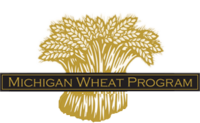Lansing, Mich. (April 12, 2021) – The vote is over, ballots are tallied and the results are in! The Michigan Department of Agriculture & Rural Development shared the results on April 12 of the recent continuation referendum for the Michigan Wheat Program.
The news was good! The program was re-authorized through August 2026 by an overwhelming 85 percent of growers voting in the referenda, representing 91 percent of the production volume of growers voting.
This was the second continuation vote held for the Michigan Wheat Program. The Program was initially voted in by growers in the summer of 2011. At that time the program was approved by 54% of both the popular vote and production voted. Because the Michigan Wheat Program is established under PA 232, the Agricultural Commodities Marketing Act, it must go back to a vote of wheat farmers every five years, so they can determine if they want the program to continue.
“We, the board, are so pleased that Michigan wheat farmers see the value in the research, education and communication activities that the program has been doing,” said Bill Hunt, chairman of the nine-member wheat board and a wheat farmer from Davison.
“After the program was initially voted in during the summer of 2011 and the board appointed at the end of that year, we have set up an entire program. It began when we hired our executive director, Jody Pollok-Newsom. Since then we have worked to develop our programming, collect our very first assessments, develop a strategic plan, and fund research projects,” Hunt said.
“The results of the first continuation vote 5 years ago, showed strong grower supported which over shadowed the narrow margin of the initial vote to establish the program. The vote this time around, had even higher percentages again reaffirming that the organization has its fingers on the pulse of the industry,” said Executive Director Jody Pollok-Newsom. “The board has put in countless hours and worked very hard to develop a state of the art research program that includes not only funding research projects, but also infrastructure and boots on the ground through cost-sharing of positions over the years.”
“To date we’ve invested in nearly 150 research projects. We have invested heavily in the wheat breeding program, which is starting to pay off as growers are now able to plant some of those early releases,” added Hunt. “The future looks bright and we are very excited about the plans for the research program and for increasing the involvement of growers through some new collaborative programming which will be announced this summer. The future for wheat is bright! “
Pollok Newsom was very excited about the vote results as well.
“We have worked very hard to establish a top-notch, well-respected organization that looks out for the needs of Michigan’s wheat farmers,” she said about the successful referendum to re-authorize the program. “We have so many advantages here in our state for wheat producers given our strong infrastructure with millers and end users either in state or in the great lakes region.”
“Michigan also has an outstanding average record yield of 89 bushels per acre which greatly exceeds the national average of 47 bushels per acre. We appreciate this vote of confidence in the direction we’re headed, and we plan to deliver another five years of ambitious research, educational programs and attention to issues affecting growers,” Pollok-Newsom said.
Wheat program funds are used on behalf of growers for research, education, communication and market development. Much more information about the Michigan Wheat Program, and a sign up for a subscription to its free e-newsletter, are found at www.miwheat.org.
The Michigan Wheat Program is funded by nearly 8,000 farmers who grow wheat in 50 of Michigan’s 83 counties. The Michigan Wheat Program board seeks to promote the state’s wheat industry by funding and supporting the strategic priorities of wheat farmers working with input suppliers, seed producers, millers, end users and consumers. Research on wheat production practices and grower education has been an early priority for the organization.
